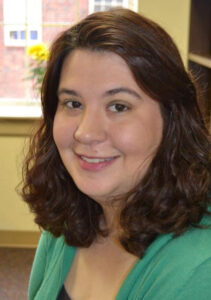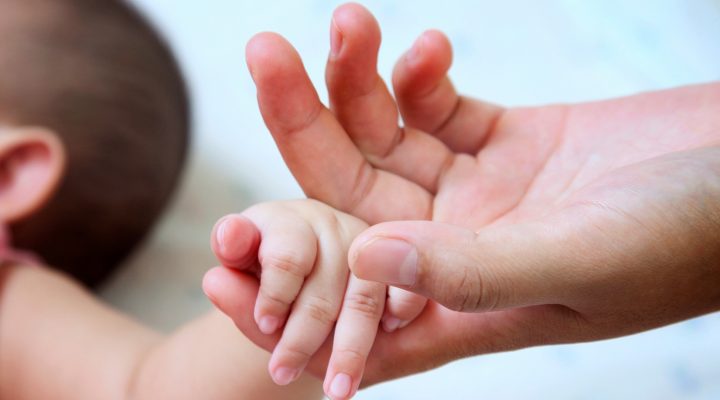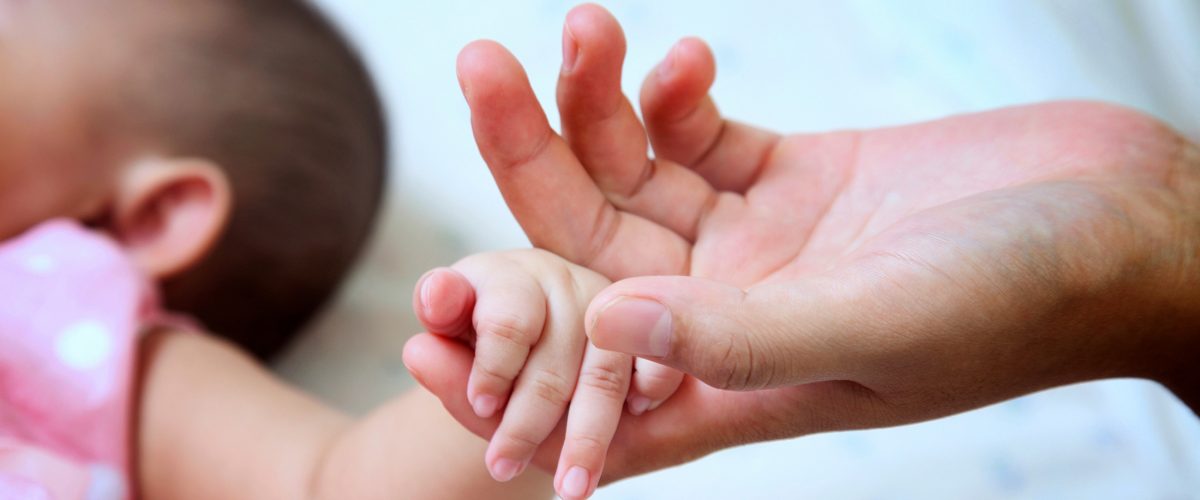I’ve been working at an affordable senior living complex for almost a year. The role includes serving as pastor of the church that meets on site as well as creating initiatives to nurture spiritual wellness within the community and the staff team.

Sara Robb-Scott
In every monthly meeting with my supervisor, she asks, “What are you passionate about right now?” Most of the time my answer has something to do with grief support. I’m passionate about the grief groups I lead for residents and staff and about creating a space to tend to the many ways grief shows up in our lives.
In most of my groups and one-on-one conversations, most people are grieving a death-related loss. Sometimes, there will be someone dealing with an estranged relationship, or feelings of loss related to a particular time that has gone by, or a place that is no longer a part of the person’s life. Often, grief group participants will realize their main “presenting” grief is compounded by other griefs in their lives that may or may not be related. Being in the midst of grief invites old griefs to come into the light.
“Being in the midst of grief invites old griefs to come into the light.”
A recent session with a spiritual director unlocked a host of unexpected thoughts and emotions for me. After a day of processing, I realized the common thread simultaneously holding me together and unraveling at the seams is grief.
Many theories have developed over the years to try to understand the intricacies of grief, bereavement, what happens within a grieving brain and heart and why we grieve the way we do. Despite the wealth of scientific and sociological research, grief remains a mystery to both grievers and professionals alike, particularly in nondeath related losses.
Adoption is a form of loss that is often misunderstood. In adoption narratives where it is conceptualized as only a gain for the family, and less as a loss for the child, it’s tough to recognize adoption as a source of grief. The ongoing, often dormant or unrecognized grief of separation that occurs between a child and their birth mother (also called a first mother) is always present, whether acknowledged or not.
As I was beginning life on this earth, I lost a birth mother, a birth culture and an identity — none of which I actually experienced as things that once belonged to me. But they did belong to me. I grew up knowing I have a Mexican biological parent, at least one biological sibling in the world, and that I was, am, loved. I never lacked love, but I’m learning as I get older that perhaps I lacked a practice of mourning.
For a long time, I moved through life keeping a lot of my story to myself. I felt pointing out that I’m adopted was a tool of ingratitude, a mark of not being fully cognizant of how much I had to be grateful for, and I didn’t want to belabor what was, for me, an integral part of who I am, but inconsequential to the world around me.
My parents encouraged questions and dialogue and opened the door for a space to invite and explore grief. I chose to resist. That resistance built a strong muscle around the dam that holds my story and its painful beginnings, securely in place — away from questions and wonder, away from thoughts and emotions.
My adoption by wonderful parents, resulting in a strong bond between me and my two sisters, has been a tremendous blessing in my life. And this blessing, as many do, exists alongside a series of losses.
“My first life experience was loss.”
My first life experience was loss. It is for most of us: loss of a secure and safe womb, and after birth the person who was with us in as embodied a way as one can be with another is there to comfort us. I don’t know who comforted me when I was born. Did I have a few moments to bond with the woman who carried and gave birth to me before being placed with my foster parents? I don’t know. I discovered in spiritual direction that it would be nice to know. This has become an invitation to recognize the reality of loss.
Adoption as a predominantly joyful event is well-supported in Scripture. Romans talks about a “spirit of adoption” and the joy of being adopted by God into God’s family. Moses’ total assimilation into his new Egyptian family while being Hebrew is celebrated as faithfulness, with little room to understand his early life as deeply traumatic. We celebrate Jochebed’s opportunity to nurse him until the time to turn him over to his new family as faithfulness too, with little regard to what tremendous pain that must have created for her.
Part of my joy and where I find meaning in my own ministry lies in offering space for people to explore what grief means to them in their life, whether it be a death-related grief, a loss of an idea, an idealized identity that never emerged or an estranged familial relationship. A listener doesn’t have to know everything to help someone feel heard.
“A listener doesn’t have to know everything to help someone feel heard.”
It could be a bold and courageous step for faith communities to intentionally discern a way forward that prioritizes learning about the unique spiritual care needs of grievers across the spectrum of bereavement: people whose lives are touched by adoption in any way, adult children of divorce, people whose lives have been touched by mental illness, to name a few.
If adoptees are offered a place to lament early losses at the beginning of life, to understand the separation of an infant or child from a primary caregiver as an event that is coded in the brain and body as a trauma, they might feel seen and loved in a new and different way. Instead of having to bear a burden of gratitude for all they gained after these losses, we can tend to the spiritual growth of adoptees by recognizing the loss first.
The best way to nurture the ongoing spiritual growth of adoptive parents is to find transformation in the tension between grief and gratitude and empower them to offer opportunities for the family to incorporate lament into their conversations about adoption. Supporting birth mothers through their unique griefs provides an opportunity for love and care where often judgment abounds. People whose lives have been touched by adoption need a unique kind of spiritual care that holds grief and gratitude in equal measure — a care that allows for the Spirit of God to bubble up in broken hearts, with healing and possibility.
What would it look like for churches to offer adoptees, birth parents and adoptive parents in their midst the gift of spaces to process the complexities and vast array of emotions that accompany adoption in each of these very different lived experiences?
Creative opportunities for nurturing spiritual growth abound in the borderland between grief and hope. I believe the Creator of us all invites us into creativity in each area of our lives, including, and maybe most specifically, the ways in which we encounter, think about, talk about and engage grief.
Sara Robb-Scott serves as director of spiritual care at Eaton Senior Communities in Lakewood Colo., and as pastor of The Church @ Eaton. She lives in Denver with her husband, Andrew, and cat, Reesee. In her free time, Sara likes to cook, paint and write on embodiment, racial identity and belonging at her blog, Embodied Belonging.


